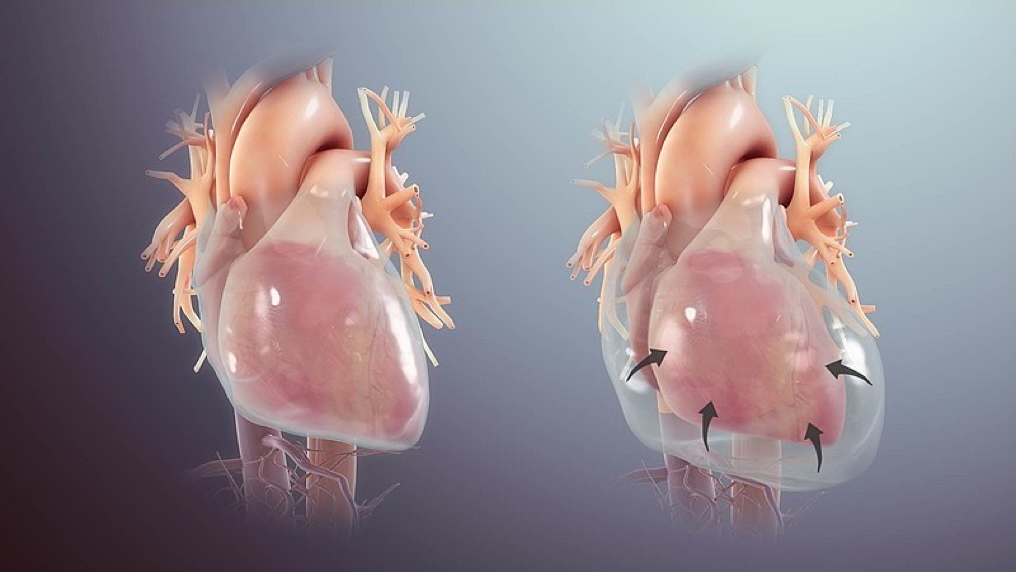Table of Contents
Overview – Pericardial Effusion
Pericardial effusion refers to the accumulation of fluid in the pericardial sac, which may be transudative or exudative depending on the underlying cause. While small effusions may be asymptomatic and benign, larger or rapidly accumulating ones can lead to haemodynamic compromise and progress to cardiac tamponade. Early identification and monitoring are essential in preventing life-threatening complications.
Definition
Accumulation of abnormal fluid volume in the pericardial cavity, either due to increased production or decreased resorption.
Aetiology
Transudative (Serous) Effusion
- Congestive heart failure (CHF)
- Hypoalbuminaemia or hypoproteinaemia
- Hypothyroidism
Exudative (Serosanguinous or Bloody) Effusion
- Infection (viral, bacterial, TB)
- Post-myocardial infarction (myocardial rupture)
- Aortic dissection
- Trauma
- Malignancy
- Autoimmune disease
The physiological impact depends on effusion volume, rate of accumulation, and underlying cardiac reserve.
Clinical Features
Symptoms
- Often asymptomatic
- Dyspnoea
- Cough
- Pleuritic chest discomfort
- Symptoms from surrounding structure irritation (e.g. phrenic, recurrent laryngeal, or oesophageal nerve involvement)
Signs
- Raised jugular venous pressure (JVP) with prominent x descent
- Distant/muffled heart sounds
- Narrow pulse pressure
- ± Pericardial friction rub
Investigations
- 12-lead ECG: Low QRS voltage, flat T-waves
- Chest X-ray: Cardiomegaly with rounded “water bottle” silhouette
- Echocardiography: Primary imaging to confirm fluid presence and assess haemodynamic impact
- Pericardiocentesis: Diagnostic and therapeutic — may identify infective, malignant, or haemorrhagic causes
Management
Mild Effusion
- Frequent observation with serial echocardiography
- Treat underlying cause (e.g. heart failure, hypothyroidism, infection)
- Anti-inflammatory agents (NSAIDs or corticosteroids if inflammatory cause)
Severe Effusion
- Monitor for signs of cardiac tamponade
- Prepare for pericardiocentesis if haemodynamic compromise develops
Complications
- Progression to cardiac tamponade
- Chronic pericardial inflammation → constrictive pericarditis
- Recurrent pericardial effusions

Summary – Pericardial Effusion
Pericardial effusion involves fluid accumulation in the pericardial sac, with causes ranging from heart failure to infection and malignancy. While mild effusions are often asymptomatic, larger ones require monitoring to prevent tamponade. For a broader context, see our Cardiovascular Overview page.